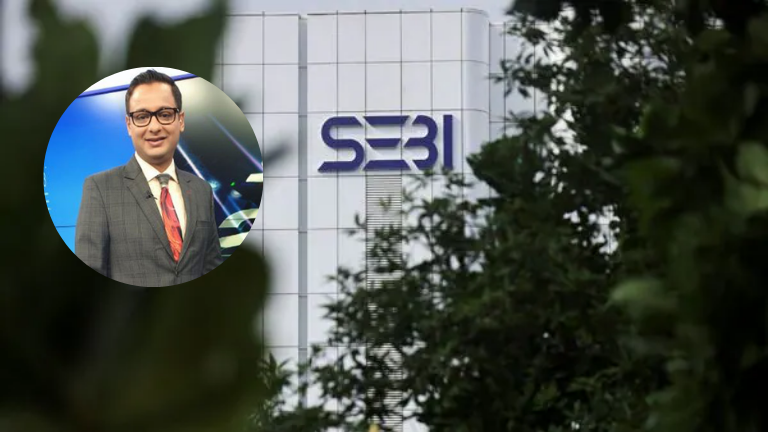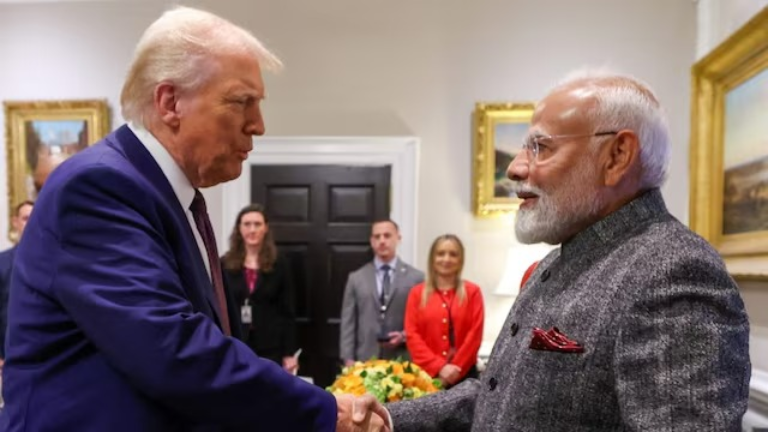Hemant Ghai SEBI Ban Insider Trading: CNBC Awaaz Anchor Barred for 5 Years
The Securities and Exchange Board of India (SEBI) has taken strict action against former CNBC Awaaz news anchor Hemant Ghai, his wife Jaya Hemant Ghai, and his mother Shyam Mohini Ghai for engaging in insider trading. The Hemant Ghai SEBI ban insider trading case has sent shockwaves across the financial world, highlighting the consequences of misusing privileged stock market information for personal gain.
SEBI has barred the Ghai family from participating in the securities market for five years, effective immediately. Additionally, Hemant and Jaya Ghai have been ordered to return ₹6.1 crore in illicit profits, along with 12% simple interest from March 31, 2020. SEBI has also imposed penalties of ₹50 lakh each on the couple for their fraudulent trading practices.
How the Hemant Ghai SEBI Ban Insider Trading Investigation Unfolded
SEBI launched an investigation into Hemant Ghai and his family in 2021 after identifying a suspicious link between his stock recommendations on CNBC Awaaz and the trading activities of his wife and mother.
The investigation uncovered shocking details, including:
✅ 81% of trades executed in Jaya and Shyam Mohini Ghai’s accounts were directly influenced by Hemant Ghai’s TV recommendations.
✅ 85% of the profits generated by these accounts were linked to stocks suggested by Hemant Ghai on live television.
✅ The trading activity in the Ghai family’s accounts abruptly stopped after regulatory alerts were raised by the NSE and MOFSL.
Following these findings, SEBI issued interim orders in 2021, followed by confirmatory orders in 2022. However, after a detailed reinvestigation in July 2022, SEBI released its final order on March 19, 2024, confirming the fraudulent trading pattern and the misuse of inside information for personal gains.
How Hemant Ghai Exploited Insider Information
The Hemant Ghai SEBI ban insider trading case reveals how financial journalists with privileged market access can manipulate stock prices for personal benefit.
📌 Key Findings from SEBI’s Investigation:
- Hemant Ghai had direct control over the trading accounts of his wife and mother.
- His phone number, email ID, and bank credentials were linked to these accounts.
- He was in constant communication with a dealer from MAS Consultancy Service, the firm that executed the trades.
- After his trading restrictions were lifted in 2022, his wife’s profits dropped significantly, proving that her previous success depended on insider tips.
According to SEBI Whole-Time Member Ashwani Bhatia:
“Anchors hold a position of privilege. However, Hemant Ghai misused this privilege for personal gain. High-profile TV anchors entrusted with informing investors must not exploit non-public information for financial benefits.”
This Hemant Ghai SEBI ban insider trading case demonstrates how unethical practices can shake investor confidence and compromise market integrity.
Role of MAS Consultancy and MOFSL in the Insider Trading Case
Apart from the Hemant Ghai SEBI ban insider trading ruling, SEBI also took action against MAS Consultancy Service and MOFSL for facilitating fraudulent transactions.
📌 Penalties Imposed by SEBI:
✔ MAS Consultancy Service fined ₹30 lakh for submitting fabricated order instruction sheets and failing to maintain proper trade records.
✔ MOFSL fined ₹5 lakh for negligence and non-compliance with market access regulations.
MAS Consultancy, an authorized trading partner of Motilal Oswal Financial Services Ltd (MOFSL), attempted to conceal the insider trading by disguising trades executed by Hemant Ghai as those placed by his wife and mother.
SEBI’s investigation revealed that despite receiving multiple alerts from NSE regarding suspicious activity, MOFSL failed to take appropriate action.
“MOFSL received warnings about potential pump-and-dump activities in Jaya Ghai’s trading account. However, it failed to investigate properly and instead accepted MAS Consultancy’s denial of wrongdoing.”
This negligence led SEBI to impose a monetary penalty on MOFSL for failing to comply with market integrity guidelines.
Hemant Ghai SEBI Ban Insider Trading: Impact on Market Integrity
The Hemant Ghai SEBI ban insider trading case sets a strong precedent against financial fraud, reinforcing SEBI’s commitment to ensuring market transparency.
🔹 SEBI has reinforced its zero-tolerance policy against insider trading to prevent financial manipulation.
🔹 Journalists and TV anchors are now under greater scrutiny to prevent misuse of non-public information.
🔹 Brokerages and trading firms must improve due diligence to prevent such fraudulent activities in the future.
This case is a reminder that SEBI is closely monitoring market activities and will take strict action against any form of insider trading.
SEBI Takes a Stand Against Insider Trading
The Hemant Ghai SEBI ban insider trading case serves as a landmark decision in financial market regulation. SEBI’s strong enforcement action against market manipulators highlights the importance of transparency and ethical practices in stock trading.
📌 Key Takeaways from SEBI’s Final Order:
✔ Hemant Ghai, Jaya Ghai, and Shyam Mohini Ghai banned from trading for 5 years.
✔ Hemant and Jaya Ghai ordered to return ₹6.1 crore in profits, plus 12% interest.
✔ MAS Consultancy fined ₹30 lakh for aiding insider trading practices.
✔ MOFSL penalized ₹5 lakh for supervisory failures.
The Hemant Ghai SEBI ban insider trading case reinforces SEBI’s role as the market watchdog, ensuring that investors’ trust in India’s financial markets remains strong.
This case is a clear warning that financial professionals engaging in insider trading will face severe legal consequences.







